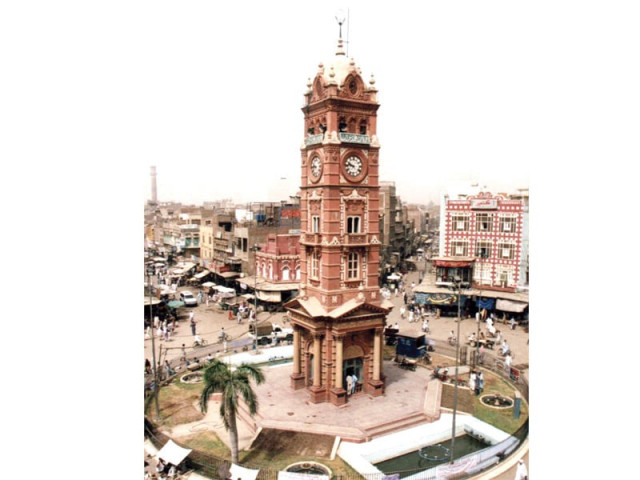Building competitiveness: How Faisalabad topped the “Doing Business” rankings
The city’s businessmen and govt officials seem more willing to work with what they have.

Building competitiveness: How Faisalabad topped the “Doing Business” rankings
In 2010, when Faisalabad was ranked as the best city in Pakistan to do business by the World Bank, many government officials and businessmen in the city were not at all surprised. Over the past decade, they had seen a concerted effort on the part of the provincial and district government to make the third largest city in the country a welcoming business hub.
A series of interviews by The Express Tribune with current and former government officials, politicians and businessmen reveals a little noticed effort on the part of the political and economic leadership of Faisalabad to put their city on the world map of business.
The World Bank’s ‘Doing Business in Pakistan Report 2010’ compared 11 cities in Pakistan to each other on how easy the government made it for entrepreneurs to do business. Among the criteria that were used was how easy it is to register a business, to buy and sell property, to hire labour, etc. Faisalabad came out on top of that ranking.
What distinguishes Faisalabad from many other cities in Pakistan is a willingness by the local government to utilise the resources at their disposal, pushed in part by an active business community that is highly influential politically in the city.
Every district in Pakistan, for instance, has an Office of Enterprise and Investment Promotion, but Faisalabad’s has been actively trying to improve the business climate for local and foreign investors, more so than most others.
Shahbaz Khan, the officer in charge of Faisalabad’s Enterprise and Investment Promotion office, said that the government no longer requires a ‘no objection certificate’ or a licence for most businesses, freeing most entrepreneurs from being harassed by government officials who are more often than not simply looking for a bribe. The only licenses still required are in industries that are prone to have an adverse environmental impact, such as alcohols, sugars, and heavy chemicals.
Rana Zahid Tauseef, the former district Nazim of Faisalabad and himself a businessman, said that the local government had taken several initiatives to promote industries, including setting up two industrial estates as well as management companies to create a ‘one-stop shop’ solution for industrialists looking to set up manufacturing units in the city.
The Kurrianwala Industrialist Association and Faisalabad Industrial Estate Development and Management Company (FIDMIC) were meant to provide an enabling infrastructure to investors.
Many more development projects had been planned by the district government in collaboration with the Asian Development Bank, but were scrapped once the Pakistan Muslim League Nawaz (PML-N) came into office in 2008 in the province and abolished the elected local government system.
The provincial government, despite having stunted the local government’s initiatives, has undertaken many policies that have enhanced Faisalabad’s competitiveness.
Khalid Mehmood, an officer of the Punjab industries ministry in Faisalabad, said that the electronic property registration system in the province has reduced both the cost and the time it takes to register property, while making the system more accountable.
The provincial revenue department has simplified and reduced the number of procedures it takes to set up a manufacturing unit in Punjab, which helps Faisalabad’s industrialists.
Some factors that contribute to Faisalabad’s competitiveness build upon a growing economy or a lack of opportunities in rural areas. Many young men, and a few women, have moved from the outlying suburbs of Faisalabad into the city, providing a source of cheap labour.
“Faisalabad is also much safer compared to Karachi and other cities of Pakistan,” said Mehmood.
Published in The Express Tribune, September 12th, 2011.



















COMMENTS
Comments are moderated and generally will be posted if they are on-topic and not abusive.
For more information, please see our Comments FAQ